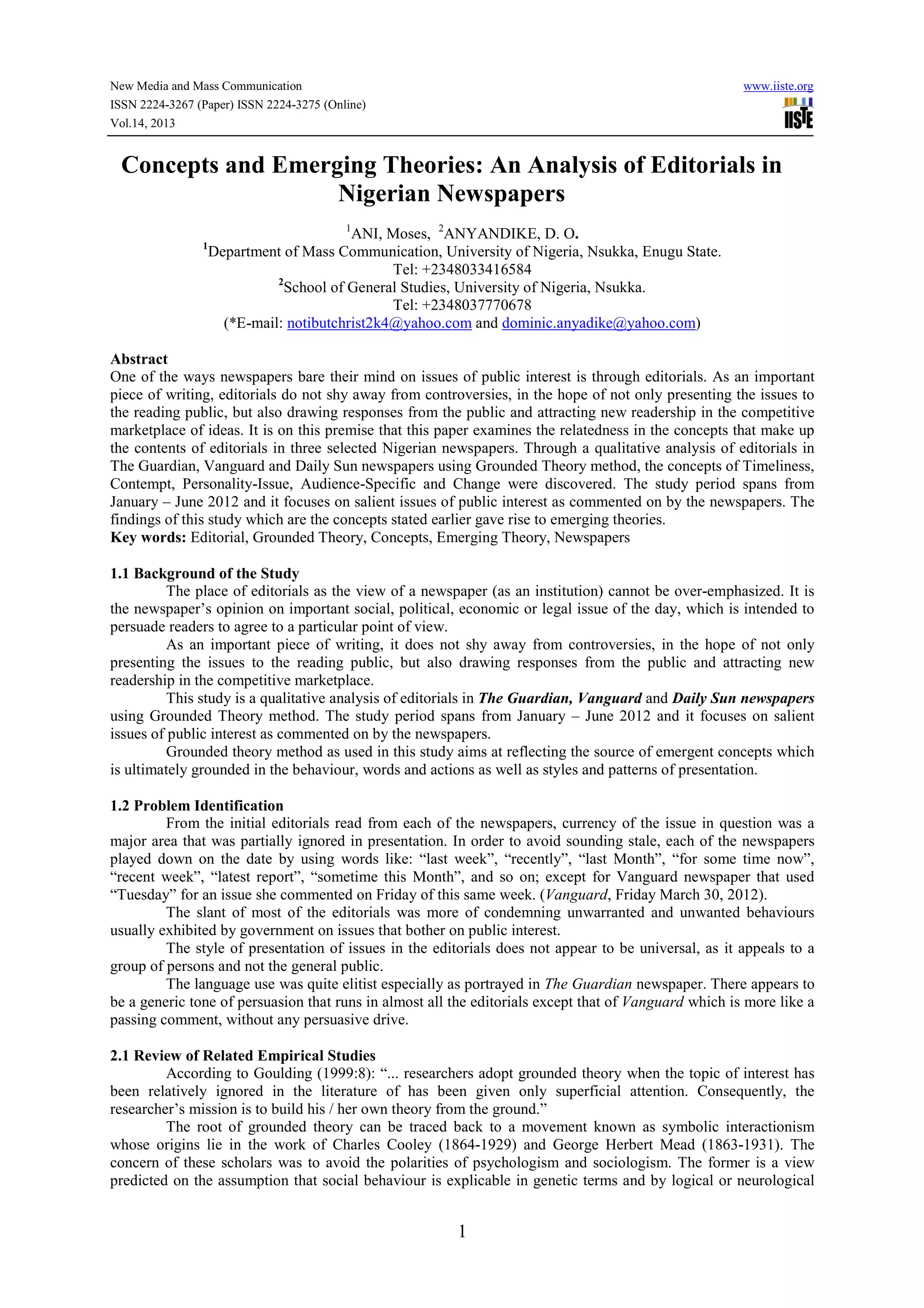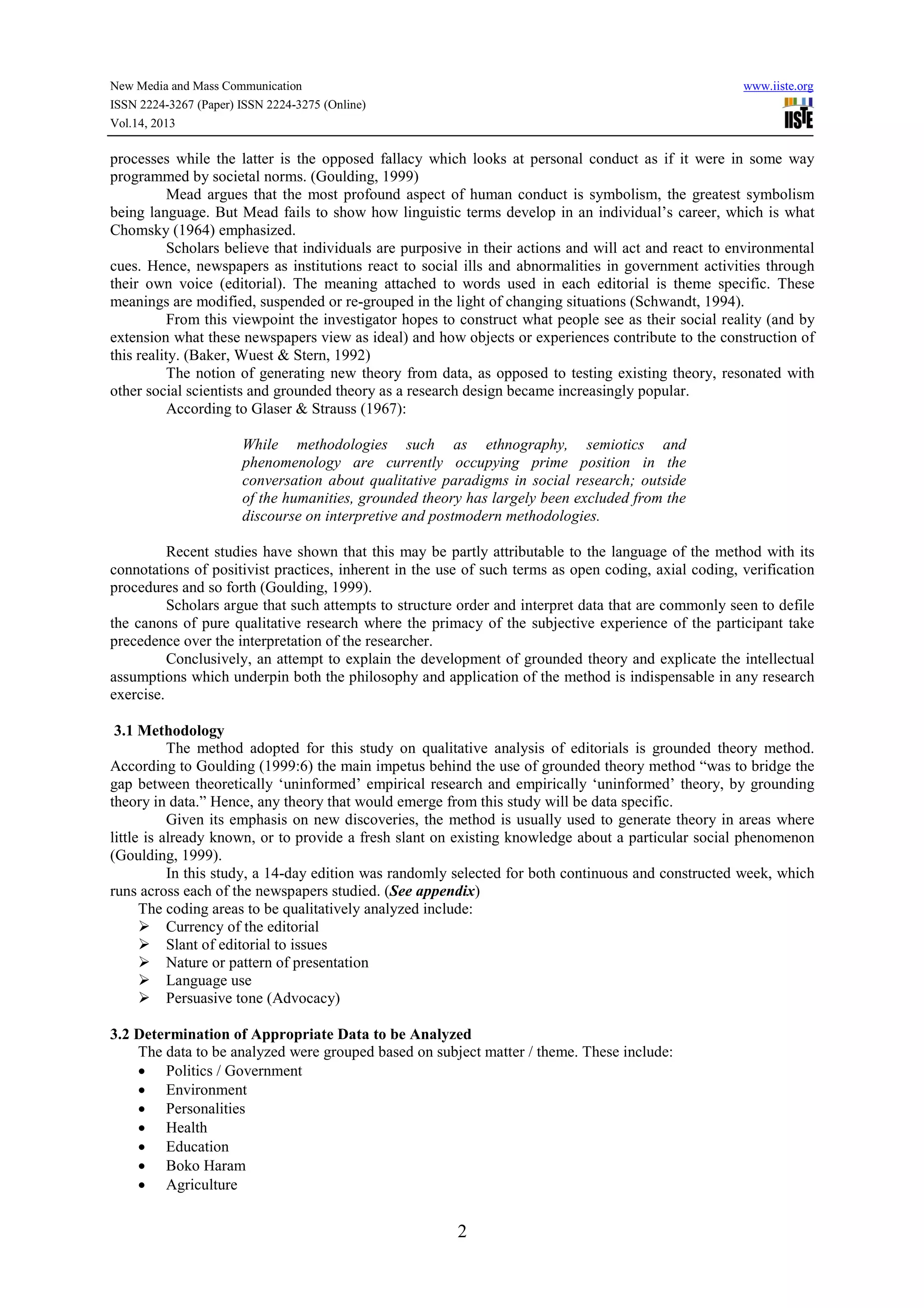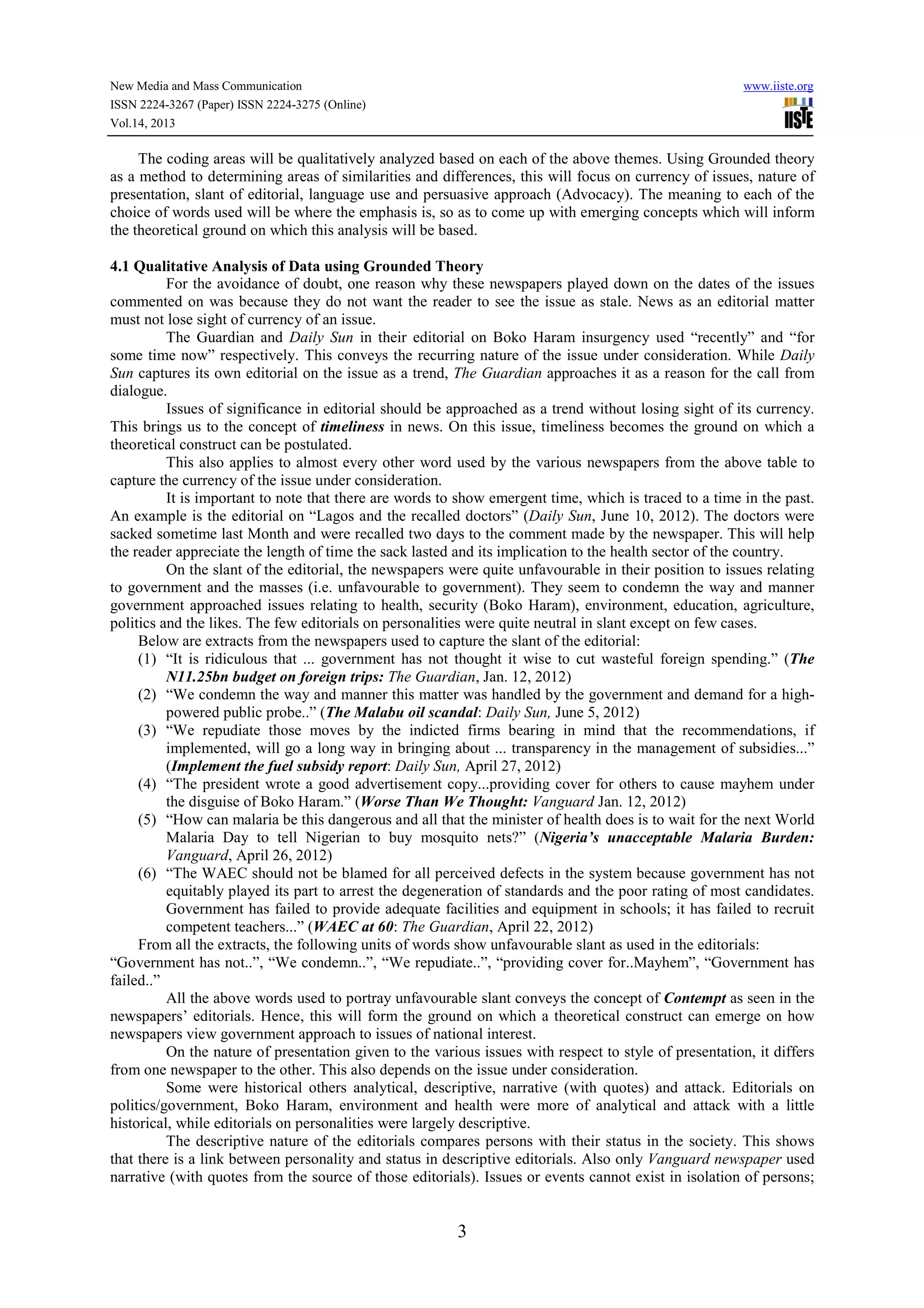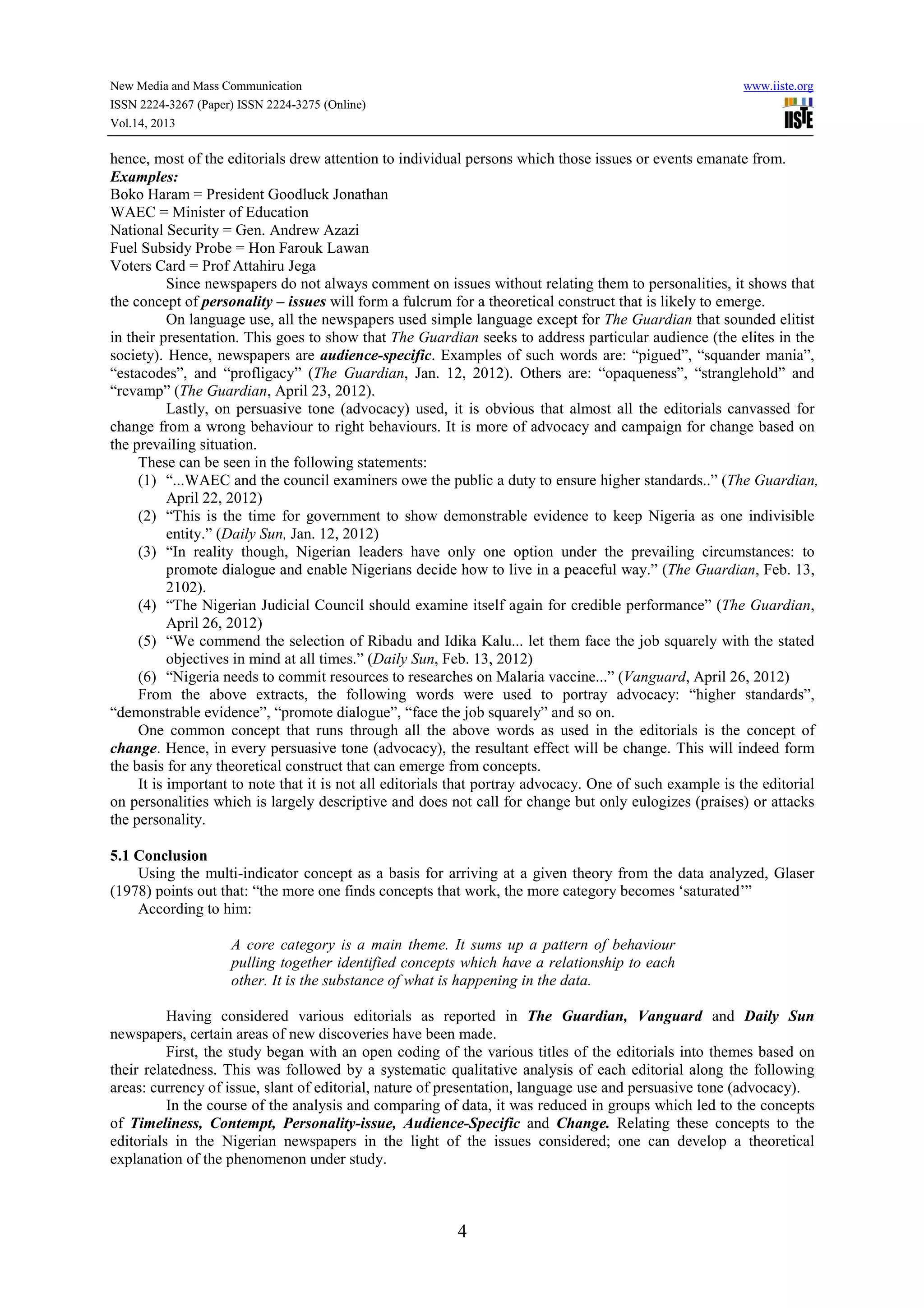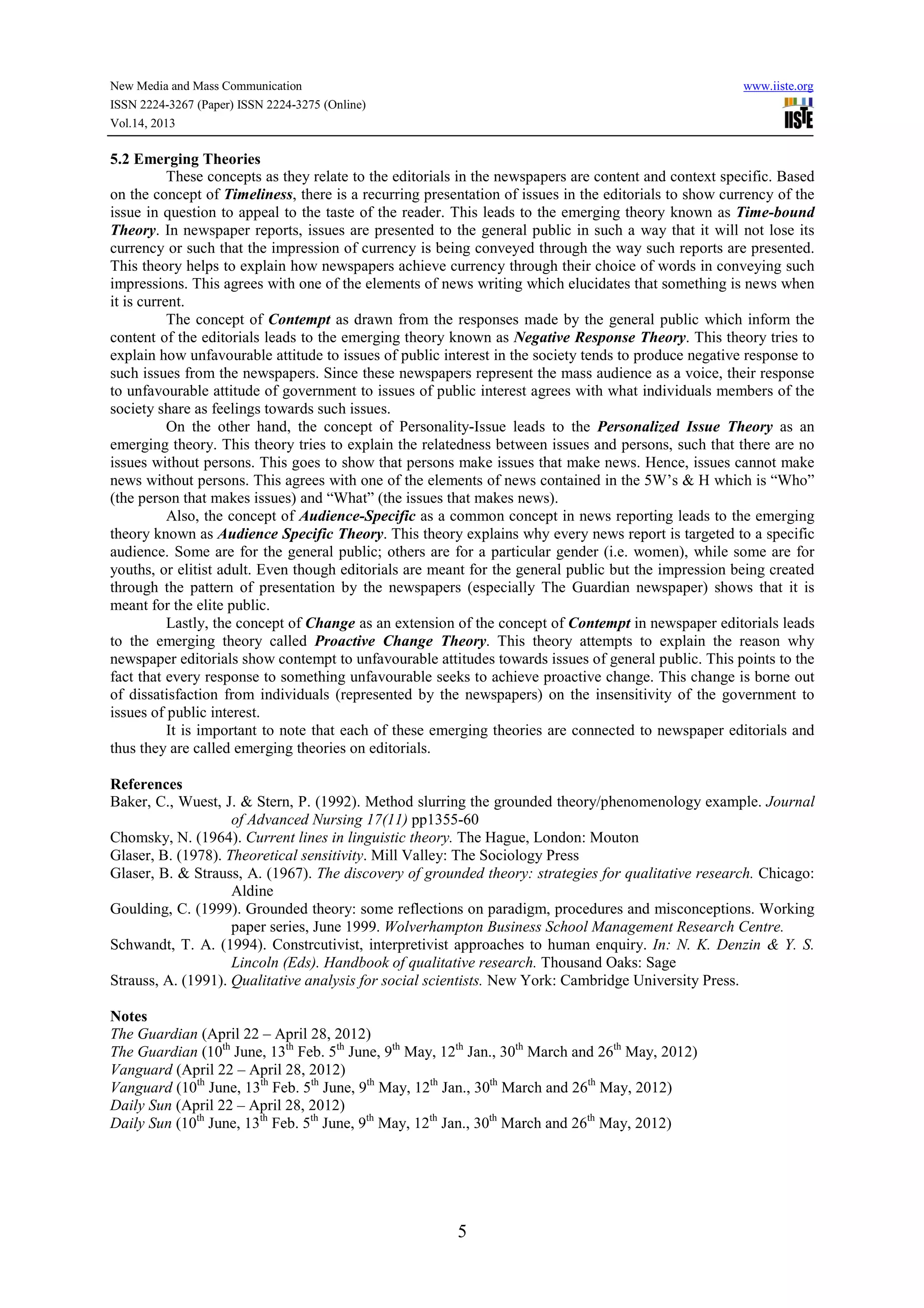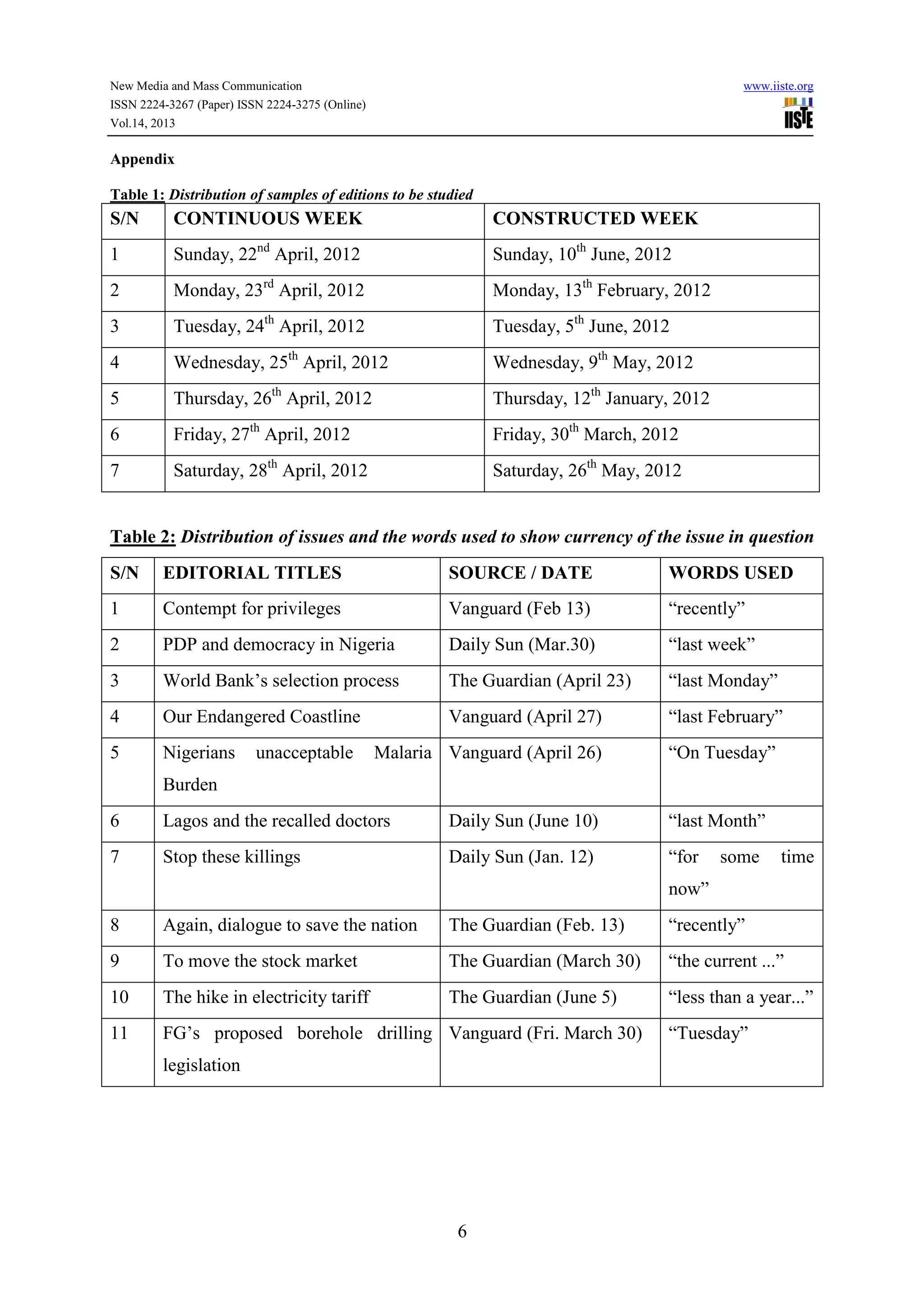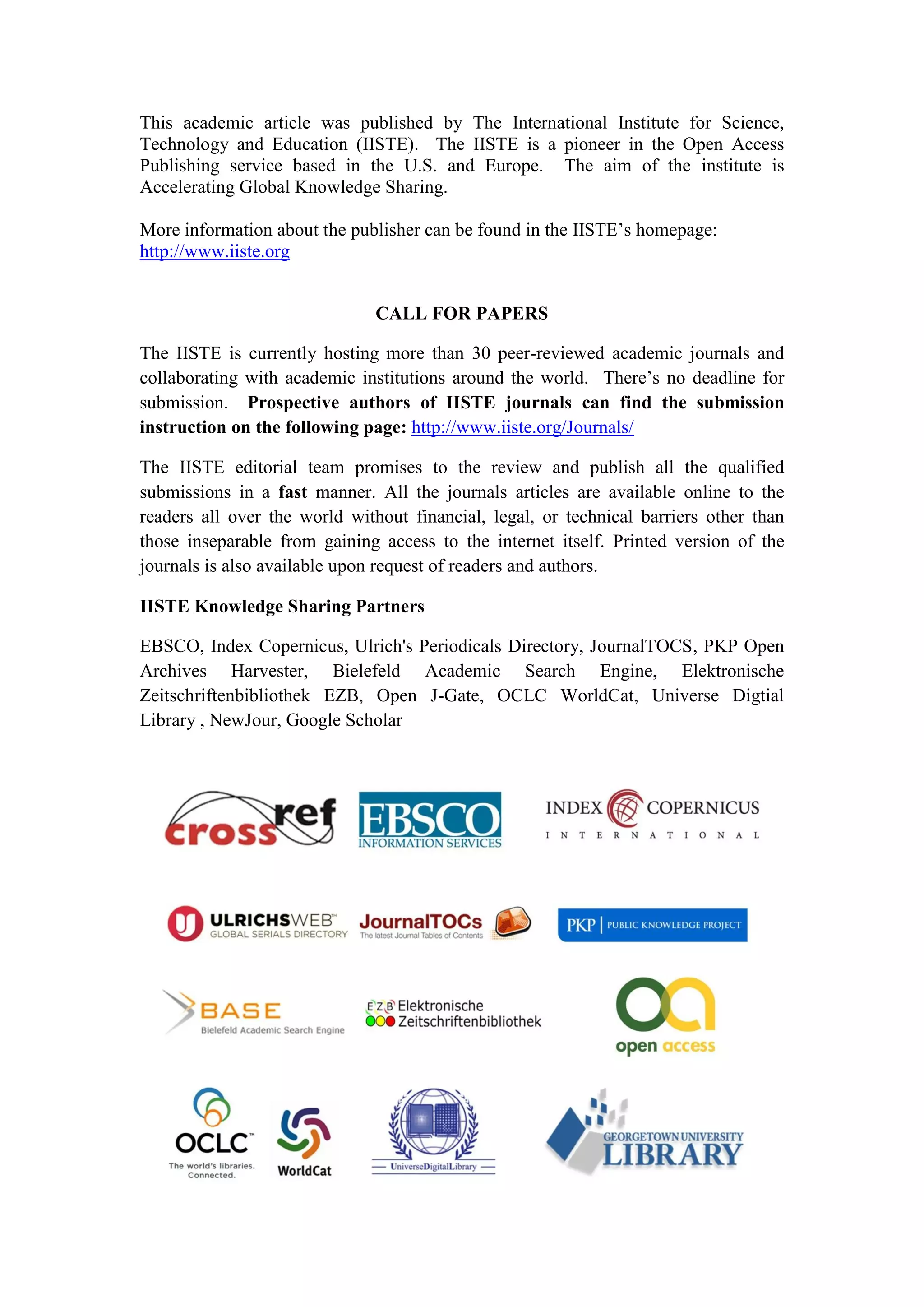This document discusses a study that analyzed editorials from three Nigerian newspapers - The Guardian, Vanguard, and Daily Sun - from January to June 2012 using grounded theory. The study identified five key concepts found in the editorials: timeliness, contempt, personality-issue, audience-specific, and change. Through qualitative coding and analysis of themes like politics, environment, personalities, and more, the study derived these concepts to develop emerging theories about how the newspapers framed issues in their editorials. The goal of the analysis was to understand how the editorials portrayed issues while maintaining relevance through considerations like timely language.
